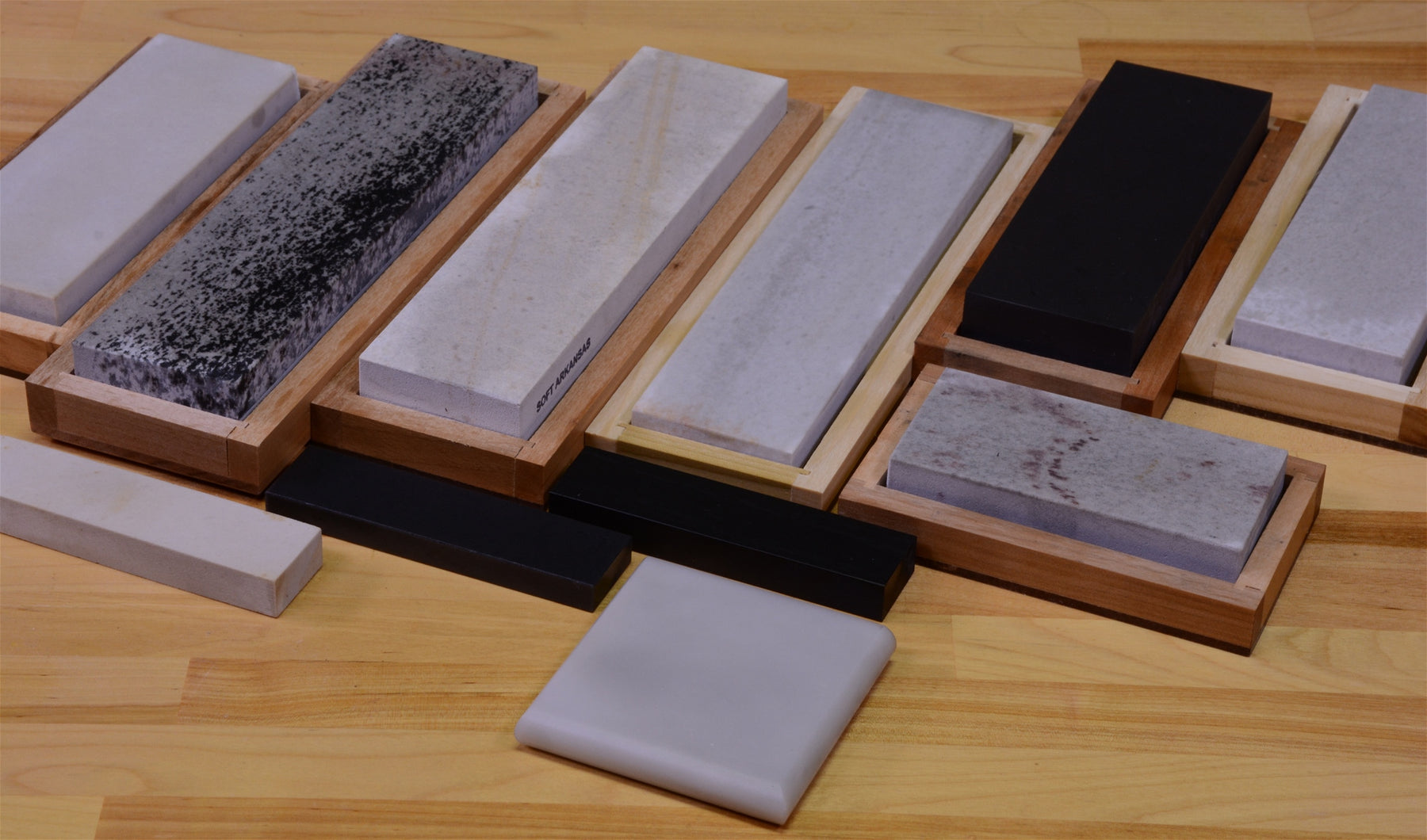Arkansas Stone FAQ

Are Arkansas Stones natural or man made?
Arkansas Stones are natural stones. The stones we offer are quarried, graded and milled to shape in the US.
How do the grits of Arkansas Stones Compare to each other?
Arkansas Stones are graded not by grit numbers like other types of sharpening stones, but by their density and hardness. The less dense, or softer the stone, the coarser it is. The more dense, or harder the stone, the finer it is. The coarsest Arkansas Stone we carry is the Soft Arkansas. The Hard Arkansas is in the middle of the Arkansas stones, and the Hard Black and Hard Translucent Arkansas stones are the finest.
Which is finer, the Hard Black Arkansas or the Hard Translucent Arkansas?
Although many sharpeners will profess a preference for one or the other they are the same density, and therefore the same grit. Only the color separates them. Being a "made by nature" product, there is of course some variation between individual stones.
How do the grits of the Arkansas Stones compare to other oil stones?
Arkansas stones are as a whole finer than the other types of oil stones. The Soft Arkansas is a bit finer than both the Fine India and the Fine Crystolon stones, and it makes an excellent next step from those types.
Are there equivalent grit number rating for Arkansas Stones?
All grit number equivalencies with Arkansas Stones are approximate of course, but the numbers are usually given as: Soft Arkansas 600-800 grit, Hard Arkansas 800-1000 grit, and Hard Black or Hard Translucent Arkansas 1200+ grit.
How fine of an Arkansas Stone do I need?
The decision of which stone to finish with is a personal one depending on what kind of edge you desire, but we recommend going through at least a Hard Arkansas. A Soft Arkansas stone will leave an edge with a bit of tooth which some people may find sufficient, but which we find to be a bit rough. A Hard Arkansas will leave a more refined edge that is more highly polished and we feel better suited for most applications. And a Hard Black or Hard Translucent Arkansas will leave a very refined edge that is approaching mirror fine for those who like to have the best edge possible.
What kind of oil should be used with Arkansas Stones?
We recommend a light mineral oil design for sharpening such as the honing oil that we carry. This type of oil will not harden and gum up stones like a vegetable based oil eventually will.
Can Arkansas Stones be used with water instead of oil?
While they can, we recommend using honing oil. The main difference between the two is that when oil is used, some of it remains in the stone after a sharpening session, so the stone is always at least partially charged with oil the next time it is needed. A stone soaked in water can dry out between uses however, meaning that a generous amount of water needs to be applied to the stone with each use.
Can Arkansas Stones be used dry?
Using Arkansas Stones dry is not recommended. When used without water or oil, Arkansas Stones will become clogged with the waste material from sharpening which will make them work dramatically more slowly.
Do Arkansas Stones loose their flatness with use?
Arkansas Stones do wear and can develop an uneven surface with over time. However, they are quite hard and this wearing is not a quick process the way it is with water stones. Practically speaking, many sharpeners rarely or never have a need to level their Arkansas Stones.
Can Arkansas Stones be flattened?
Yes. It is not an easy process because their hardness makes them slow to resurface, but with effort it can be done. In the rare event that you would decide to, Arkansas Stones can be flattened by rubbing them against an abrasive on a hard, flat surface. We find the most efficient tool for the job is a diamond stone like the DMT Dia-Flat.
